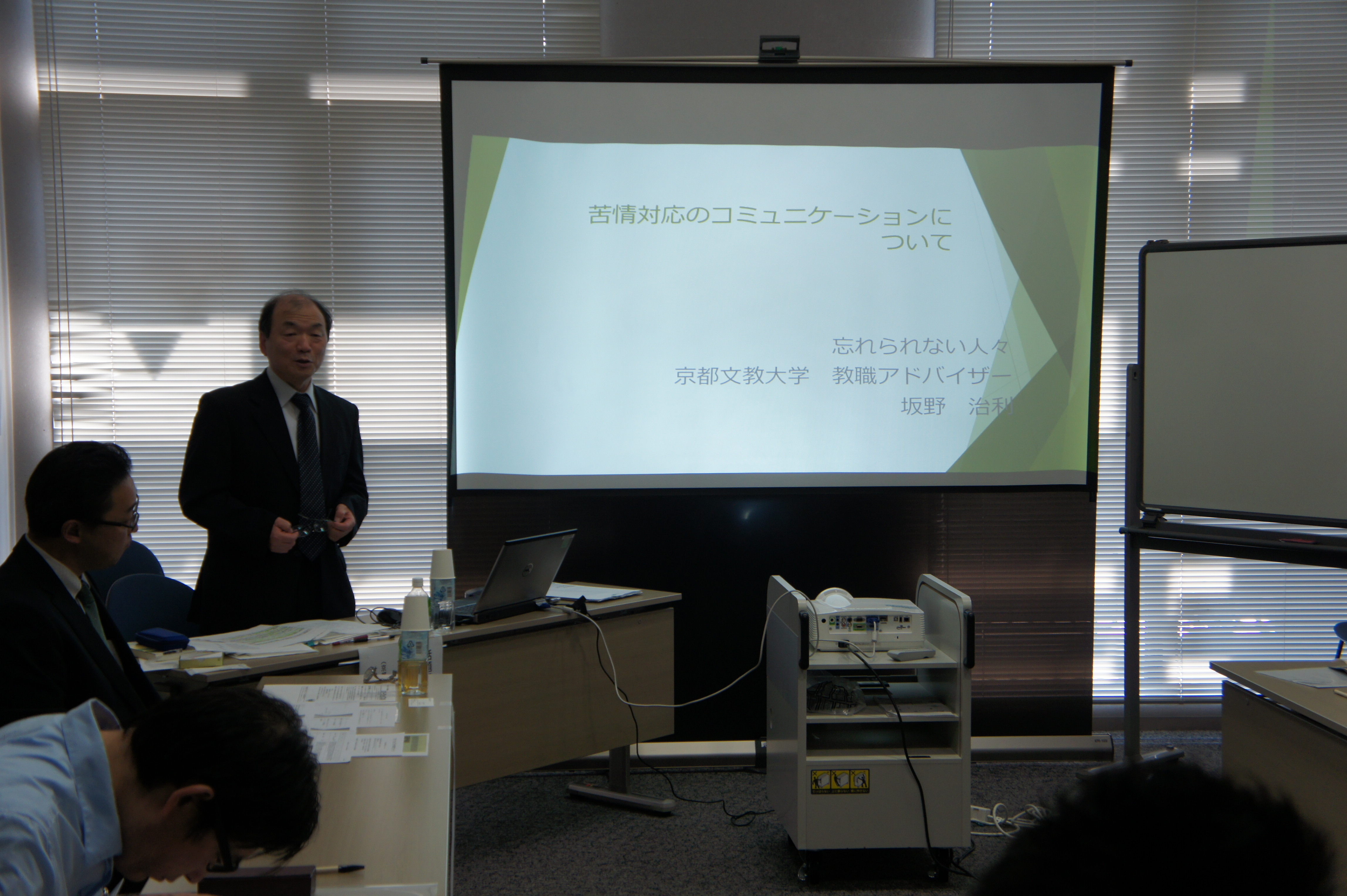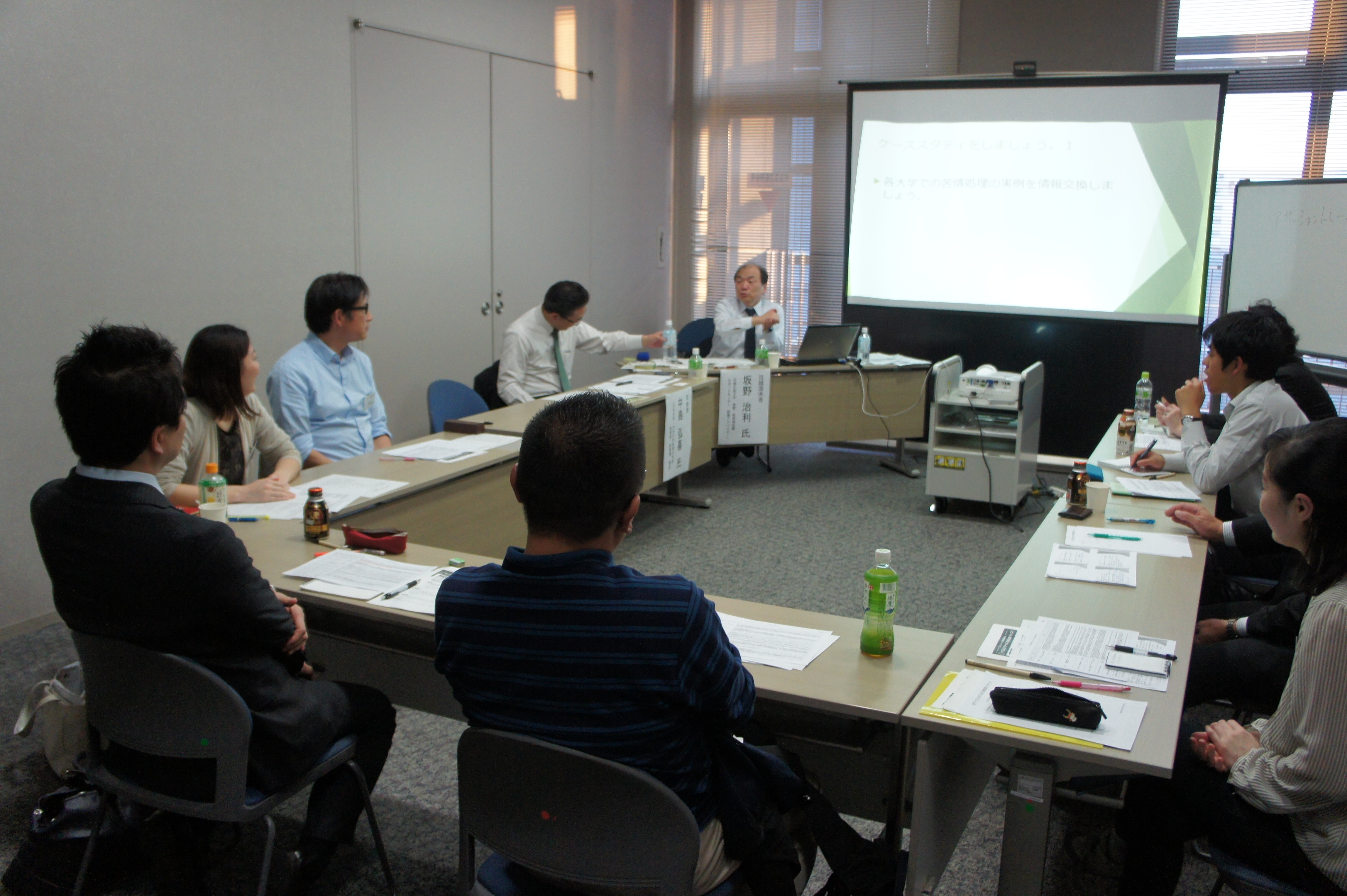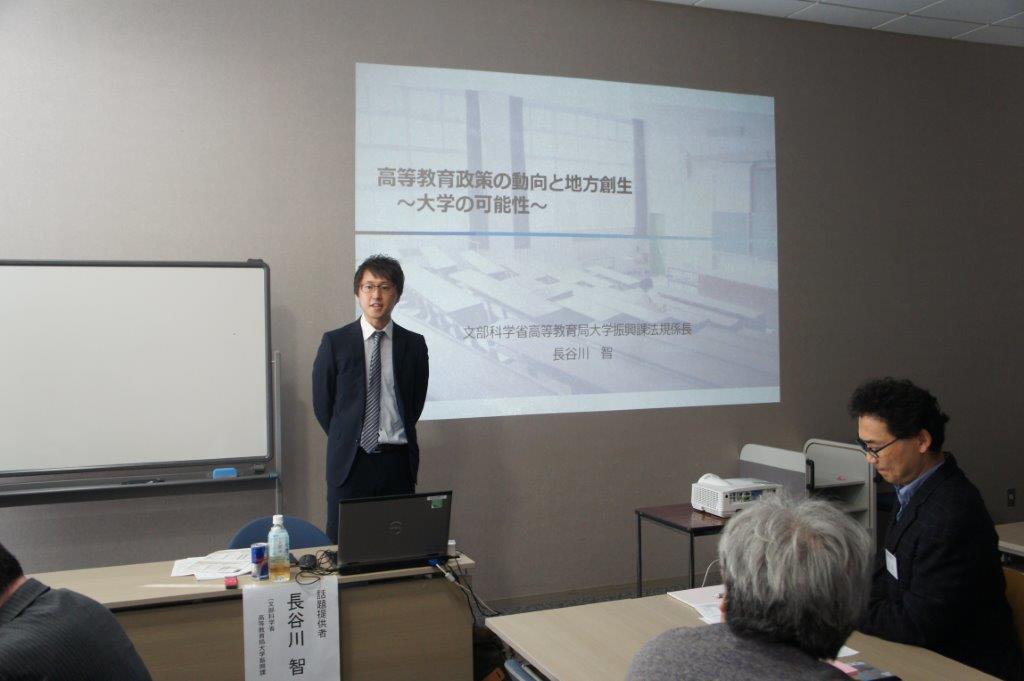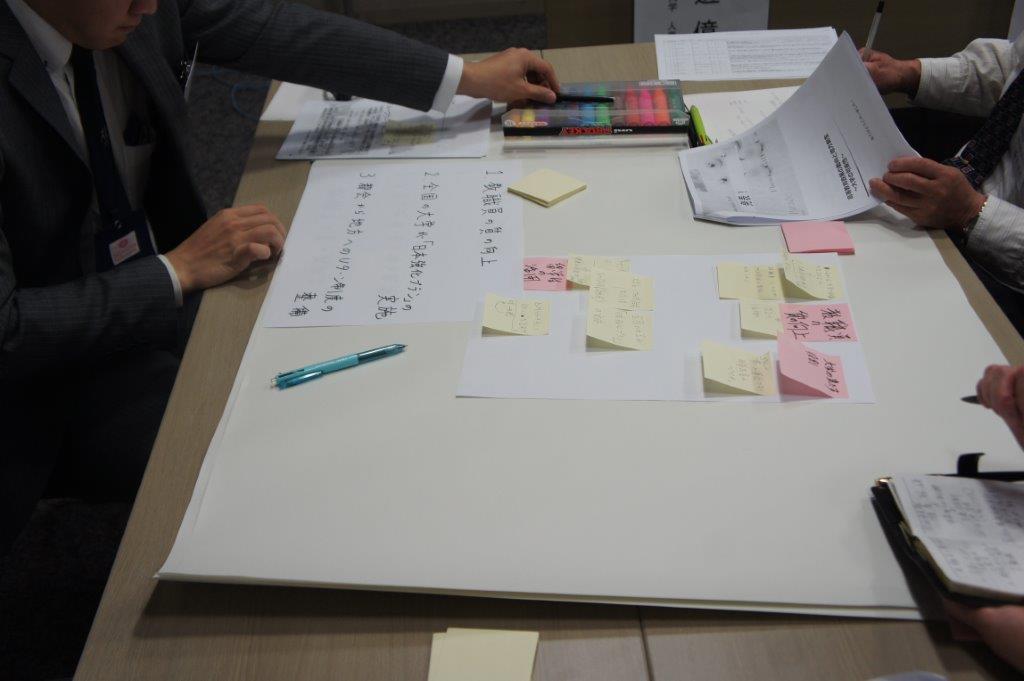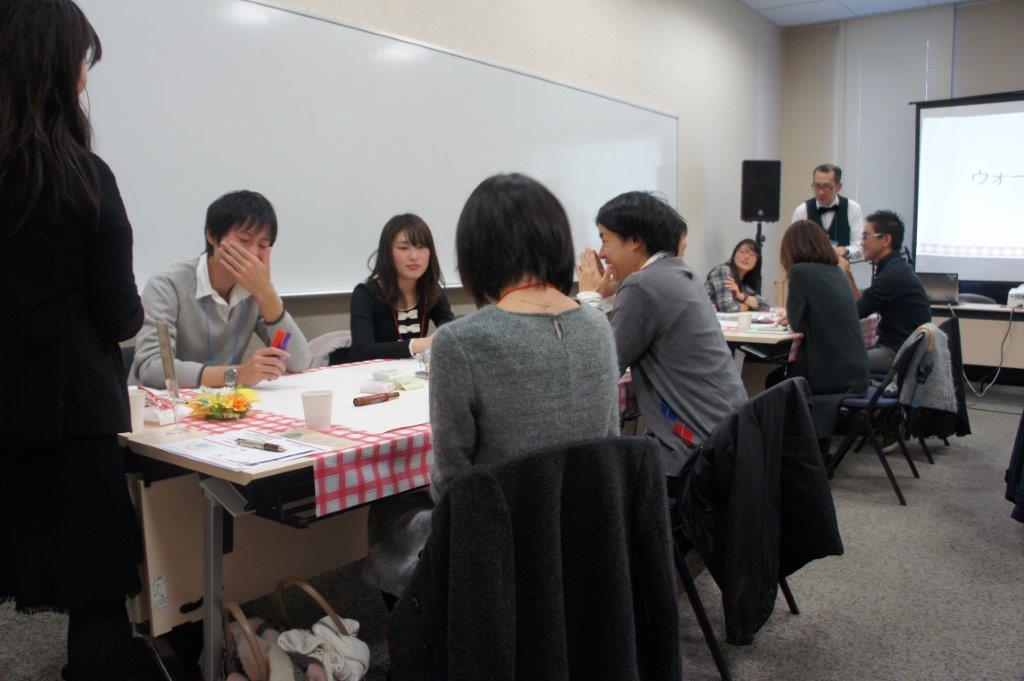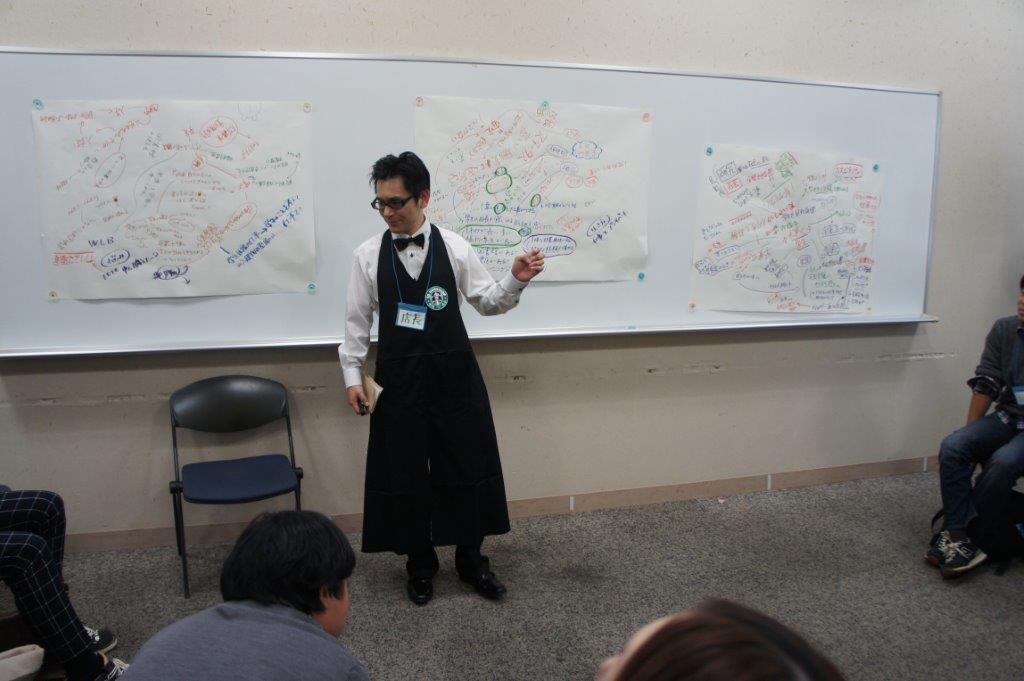Business Overview
In a situation where the environment surrounding universities is changing rapidly, the management and operation of universities has come to occupy an important position, and the role of university staff is becoming extremely important. In order to adapt to such an environment, we are developing a variety of projects to improve the qualifications of university staff, including management and education and research support.
In the SD workshop, students will make new discoveries, deepen their awareness, and create a network of human exchange that cannot be obtained through lectures through discussions with colleagues from other companies in the same industry (staff from other universities).
Outline of the event
| Venue | Campus Plaza Kyoto | |
| Organizer | University Consortium Kyoto | |
| Target | If you are a university employee (non-university staff (faculty member, etc.), please contact us in advance. ) | |
| Participation Fee | Member Universities | 1,000 yen each time |
| Non-Member Universities | 2,000 yen each time | |
| Capacity | 20 people each time * Applications will be accepted on a first-come, first-served basis, and will be closed when the capacity is reached even before the application deadline. * If the number of applicants is much less than the capacity, the course may not be held. |
|
Session 1: Communication for handling complaints
| schedule | Saturday, November 5, 2016 13:00~17:00 |
| Topic Provision | Mr. Harutoshi Sakano (Teacher Advisor, Teacher Support Center, Kyoto Bunkyo University) |
| Application Deadline | Monday, October 31, 2016 |
| summary | Recently, excessive demands and excessive expectations of schools (including universities) from parents and the community have become a hot topic in newspapers and on television. Depending on how they respond, faculty and staff may become physically and mentally exhausted and interfere with their work, which is one of the reasons for their busy work. In this workshop, we would like to think together about communication between faculty and staff in handling complaints, including examples of responses from participants (if possible, please be prepared to present examples of complaints that have occurred at your university). I would like to talk about case studies). |
Session 2: Trends in Higher Education Policy and Regional Revitalization ~The Potential of Universities~
| schedule | Saturday, November 26, 2016 13:00~17:00 |
| Topic Provision | Mr. Satoshi Hasegawa (Director, Regulations Section, University Promotion Division, Higher Education Bureau, Ministry of Education, Culture, Sports, Science and Technology) |
| Application Deadline | Extension on Wednesday, November 23, 2016 |
| summary | In Japan, the population continues to decline, and the need for regional revitalization is being called for. This is by no means irrelevant to universities, but rather, how to deal with local communities and Japan society in light of this historical background is an extremely important issue. What is regional revitalization and what is happening in Japan now? In this context, what direction will higher education take? What is the role of the university? I would like to think about it together, including my experience of being seconded to the Cabinet Secretariat’s Town, People, and Work Creation Headquarters. |
Part 3: Yes! Authentic World Cafe ~Let’s Talk, Our Career Design~
| schedule | Saturday, December 3, 2016 13:00~17:00 |
| Topic Provision | SD Seminar 1st Class |
| Application Deadline | Friday, November 25, 2016 |
| summary | Are you about to get married to work? In fact, “career” is not limited to work, but refers to the way of life itself. American psychologist D.E. Super defines a career as a variety of roles at a certain age and scene in life, and the roles such as “professional,” “leisure enjoyer,” and “homemaker” are represented by rainbow-like gradations. In this workshop, you will experience a discussion technique called “World Café”. In this process, we aim to reconsider one’s own “career” through interaction with other participants. What color “carrier” do you draw? * Click here to download the third leaflet. |
[Click here to download the SD workshop flyer]
Application
Please download the application form and send it to SD consortium.or.jp as an e-mail attachment. We will reply to you after receiving your application. If you do not receive the e-mail within a few days, please contact the University Consortium Kyoto SD Secretariat.
- 2016 1st SD Workshop Application Form
[Application Form Download]Finished - 2016 2nd SD Workshop Application Form
[Application Form Download]Finished - 2016 The 3rd SD Workshop Application Form
[Application Form Download]has ended.
Implementation Report
Report on the 1st SD Workshop
On Saturday, November 5, we invited Mr. Harutoshi Sakano, Teacher Advisor of the Teacher Profession Support Center, Kyoto Bunkyo University, as the first project of the SD Workshop Training 2016, and held a total of eight participants from member and non-member schools.
Schedule on the day
・Topic provision
・Presentation of case studies and comments on complaints by participants
In the workshop, after the introduction of the instructors, Mr. Sakano provided topics such as what types of complaints are different and how to deal with them, based on his extensive experience at elementary schools and the Board of Education.
Complaints can be divided into four types: reality-justified, understanding-distorted, difficult-to-solve, and over-demanding, and it was pointed out that it is important to respond calmly and without panicking even if the other party raises their voices. In addition, specific points for handling complaints, such as responding in an organized manner, taking specific records (memos), and understanding knowledge of the law, were also explained.
In the second half, the participants talked about their reasons for participating in this training and cases of complaints, and all participants exchanged information and had discussions. Participants commented very well, saying, “It was very good to be able to give not only lectures, but also presentations and exchanges of opinions with other universities,” and “It was very easy to understand, interesting, and informative.”
Report on the 2nd SD Workshop
On Saturday, November 26, Mr. Satoshi Hasegawa, Director of the Laws and Regulations Section of the University Promotion Division, Higher Education Bureau, Ministry of Education, Culture, Sports, Science and Technology, was invited as a speaker of the second project of the “SD Workshop Training 2016” entitled “Trends in Higher Education Policy and Regional Revitalization ~The Potential of Universities~”, which was attended by a total of 10 people from member and non-member schools.
Schedule on the day
・Topic provision
・Group work
In the workshop, after the introduction of the lecturers, Mr. Hasegawa talked about trends in higher education policy and regional revitalization, including his experience of being seconded to the Cabinet Secretariat’s Secretariat of the Headquarters for the Revitalization of Towns, People, and Jobs.
As the population of 18-year-olds continues to decline and the current number of universities becomes unsustainable, it is important for universities to survive by integrating them through restructuring or mergers, or by finding new roles such as attracting working students and international students.
In the second half, the participants were divided into groups and worked on the theme of “What role should universities play in the face of population decline?” and then each group gave a presentation. Participants commented, “I was able to participate in the program because it was very informative and enjoyable to learn about regional revitalization and higher education administration,” and “I was able to learn about what kind of choices universities will make and how to survive in the inevitable situation of population decline.”
Report on the 3rd SD Workshop
On Saturday, December 3rd, we welcomed 7 volunteers (1st class) of the 2016 SD Seminar graduates of the University Consortium Kyoto SD Project as topic contributors, and held the third project of the “SD Workshop Training 2016” entitled “Authentic World Café ~Let’s Talk, Our Career Design~”, which was attended by a total of 11 people from member and non-member schools.
Schedule on the day
・Topic provision
・World Café
In the workshop, after a lecture on career design, participants experienced the World Café.
This workshop emphasized creating an atmosphere, with seven speakers dressed as café staff to welcome the participants, the layout of the room was set with a café in mind, and the DJ played music according to the situation. At the World Café, we changed groups three times, had discussions on different themes, and at the end, we all looked back.
Participants commented, “It was a good opportunity for me to reconfirm new ideas and things in myself, and I learned about the methods of the World Café,” and “I realized the charm of university staff, and I was glad to become a university staff member again.”
Inquiries
University Consortium Kyoto SD Project
TEL 075-353-9163 FAX 075-353-9101
〒600-8216 Shimogyo-ku, Kyoto-shi, Nishitoin-dori, Shiokoji, Shimo-ku, Kyoto, Campus Plaza Kyoto
* Reception hours: Tuesday ~ Saturday 9:00 ~ 17:00 (excluding year-end and New Year holidays)














